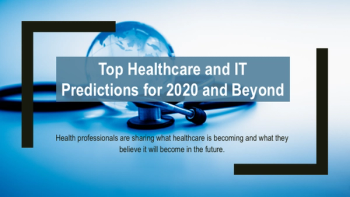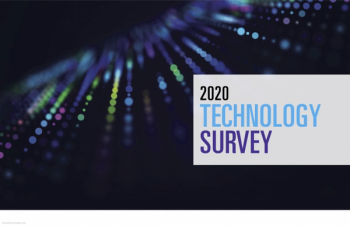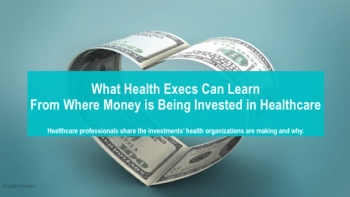
Michael Bloomberg wants a Medicare-like public insurance option, not Medicare for all. It's what you'd expect from a candidate who is appealing for support from moderate Democrats.

Michael Bloomberg wants a Medicare-like public insurance option, not Medicare for all. It's what you'd expect from a candidate who is appealing for support from moderate Democrats.

2020 wellness survey finds employees want more health programs, but few employers are offering them.

Health professionals are sharing what healthcare is becoming and what they believe it will become in the future.

As number of procedures has decreased, patient profile has shifted.

Trump administration hints that it may agree and is considering a broader scope of practice for nurse practitioners and physicians.

Data security is just one part of it. Payers also need to deliver an excellent member experience to create and maintain trust.

Twenty percent of seven in-network elective surgeries for a large national insurer resulted in a “surprise” out-of-network bill; averaging at $2,011.

FDA cleared the first generic sodium iodide product to treat hyperthyroidism and carcinoma of the thyroid.

Here’s a look at what payers and providers can expect to occur, why each change is occurring, and how payers and providers can prepare for each change.

FDA's Center for Drug Evaluation and Research approved fewer new treatments in 2019.

Managed Healthcare Executive surveyed hundreds of healthcare leaders and professionals to collect information on how their organizations are affected by technology. This year’s survey displays data focusing on healthcare organizations’ current status, patient access, data collection, communication, and future with technology.

Healthcare professionals share the investments’ health organizations are making and why.

More consumers are purchasing short-term limited duration insurance plans-which will likely have long-lasting effects to consumers and the insurance market as a whole.

Employer-sponsored insurance keeps many working.

How cancer patients can better organize around their cancer care plans in a more redesigned system.

A new study on a controversial drug shows the scientists who first found a conection with heart attacks and death were possibly right.

The top technologies for 2020 aren’t new, but they are on the cusp of moving into broader use in healthcare.

Ranks have swelled between 2010 and 2017 partly because of access to online learning.

The first FDA-approved product for NASH on the horizon.

Global market for peanut allergy treatments estimate at $4.5 billion.

A new class of drugs for high cholesterol and a novel peanut allergy treatment lead expected approvals.

How pharmacies should adopt value- and performance-based payment models and offer DIR fee reductions for pharmacists’ and their patients’ benefit.

A new class of drugs for high cholesterol and a novel peanut allergy treatment lead expected approvals.

Although commenting on the Proposed Rule is closed, if finalized, the Proposed Rule would have a significant impact on the way hospitals and physicians structure future compensation arrangements.

In first year of operation, CareMount ACO physicians reduced costs while improving care.


New plan from CVS Caremark eliminates member cost as a barrier to medications without raising costs for benefits, premiums or deductibles.

Patients' use of referrals has declined by 44% in the past year, and they now use an average of three different online sources to find a doctor, according to Doctor.com's annual consumer survey report.

Script.AI, healthcare IT solution, is bringing transparency to the prescription drug market and finding 46% savings opportunities for payers.